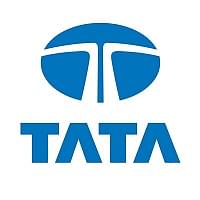M.Phil. In Agronomy - Overview
M.Phil. in Agronomy is an advanced degree aimed at those passionate about the science of soil management and crop production. This full-time, on-campus program delves deep into the principles of agriculture, equipping students with the skills needed to tackle modern challenges in food security and sustainable farming. With the rising global population, experts in agronomy are more important than ever, making this program not only relevant but crucial for the future of agriculture.
Students will explore various aspects of agronomy, from soil health to crop genetics, ensuring they gain a comprehensive understanding of agricultural practices. This program emphasizes practical experience, aligning academic learning with real-world applications.
-
Advanced Research Techniques
Learn cutting-edge research methodologies to innovate in the field of agronomy.
-
Hands-On Experience
Engage in fieldwork that connects theory with practice.
-
Sustainable Practices
Focus on eco-friendly methods to enhance agricultural production.
-
Interdisciplinary Approach
Integrate knowledge from biology, chemistry, and environmental science.
-
Networking Opportunities
Connect with industry leaders and fellow researchers for career advancement.

 Telcon
Telcon
 Tata Digital
Tata Digital
 Tech Mahindra
Tech Mahindra
 Protiviti Consulting Pvt. Ltd.
Protiviti Consulting Pvt. Ltd.
 MedPlus
MedPlus
 Techint India Pvt. Ltd.
Techint India Pvt. Ltd.
 Azova
Azova
 BIZTECH CONSULTANCY SERVICES
BIZTECH CONSULTANCY SERVICES
 Paranjape Coyt Pvt. Ltd.
Paranjape Coyt Pvt. Ltd.
 DIT University
DIT University
 Big Leap
Big Leap
 Shriram Capital
Shriram Capital
 Global Logic
Global Logic
 Lera Technology Pvt Ltd
Lera Technology Pvt Ltd
 Decathlon
Decathlon
 Just Dial
Just Dial
 Amazon Pay
Amazon Pay
 Nissan Digital
Nissan Digital
 LeewayHertz
LeewayHertz
 GTPL Hathway
GTPL Hathway


![Rajiv Gandhi University of Knowledge Technologies Basar- [RGUKT] - Colleges in Bhainsa, Nirmal](https://www.slkimgs.com/content/images/default-thumbnail.webp)